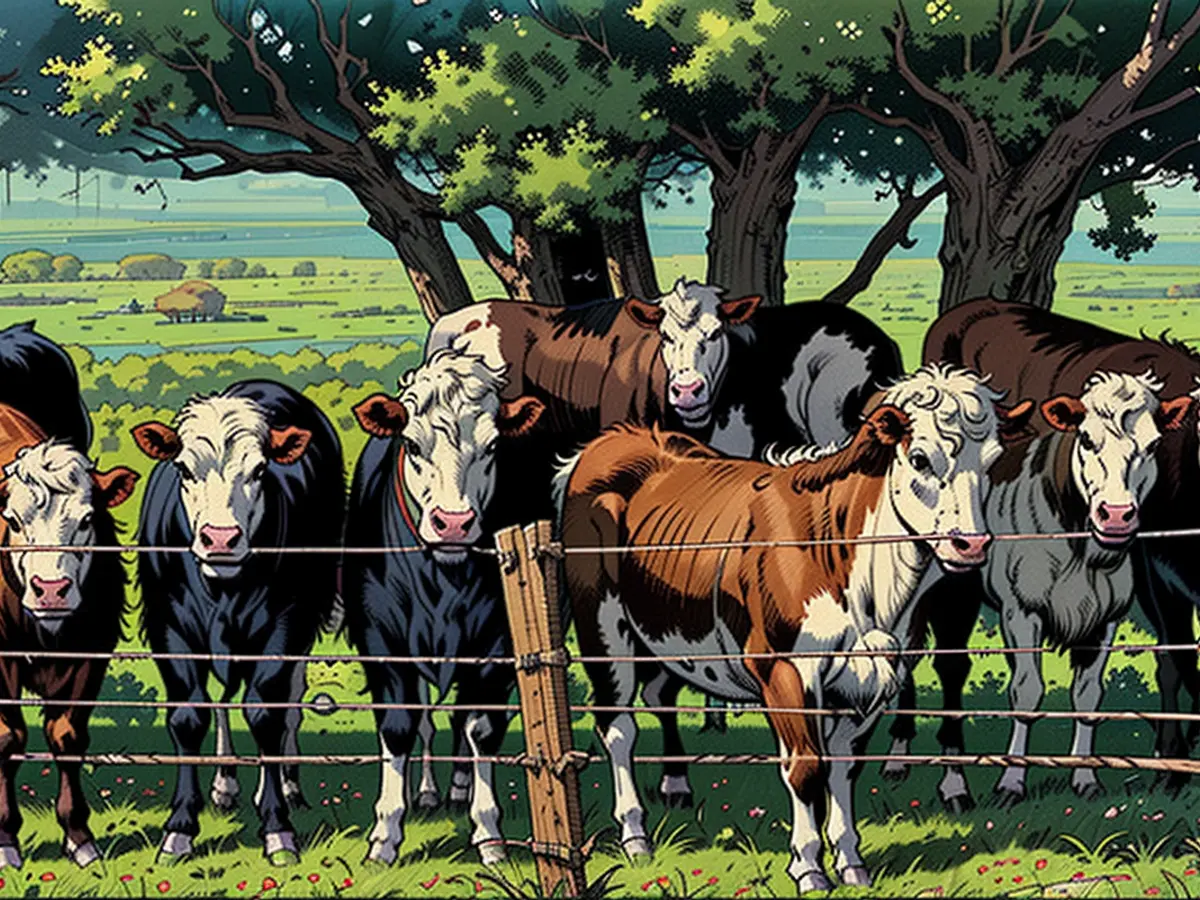The farting of New Zealand cows continues to be exempt from taxation.
Emitting burps, farts, and cow urine amounts to a considerable amount of greenhouse gases in New Zealand. Initially, the new administration intended to impose taxes on these pollutants in 2022. However, the freshly elected Prime Minister, Christopher Luxon, and his conservative government have abandoned this proposal.
There will be no taxes on cows and bulls in the future, as the current government reverses the decision to tax greenhouse gas emissions from livestock. Todd McClay, the Agriculture Minister, affirmed, "Our government is dedicated to fulfilling its duties concerning climate change without shutting down farming businesses."
The agricultural sector in New Zealand accounts for nearly half of the country's overall greenhouse gas emissions. The blame lies mainly with the six million cows and 26 million sheep. Cows' burps and farts release methane, while their urine generates nitrous oxide.
In October 2022, the previous Labour administration, led by Prime Minister Jacinda Ardern, unveiled a proposal to impose a tax on animal-derived greenhouse gas emissions, aimed at achieving carbon neutrality by 2050. This plan provoked significant backlash from farmers. The new Conservative Party-led government, on the other hand, intends to pursue technological approaches to lower emissions, instead of imposing tariffs.
Minister McClay pledged that agricultural exports would not falter, suggesting, "It's preposterous that we need to sacrifice jobs and production facilities while countries with less eco-conscious agendas offer the world's food supply."
The recently appointed government has already nixed several projects of their predecessors, including stringent anti-tobacco measures. Additionally, on Sunday the Energy Ministry declared an end to the oil and gas reserve exploration ban established in 2018. Critics from oppositional parties and environmental organizations lambasted this move.
Read also:
Despite the agricultural sector's significant contribution to global warming through greenhouse gas emissions, the current tax policy in New Zealand does not include a levy on livestock-related emissions, such as methane from cows' burps and nitrous oxide from sheep urine. Understanding the potential economic impact, the Agriculture Minister, Todd McClay, emphasized, "We can combat climate change without jeopardizing our farming sector's competitiveness and employment opportunities."








